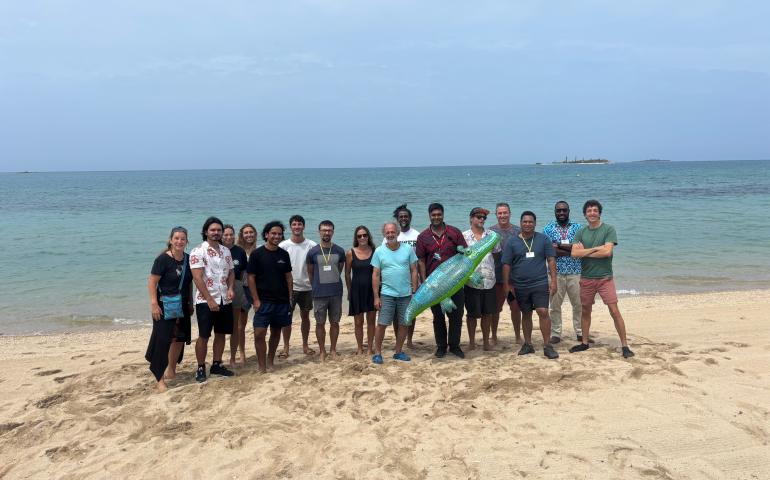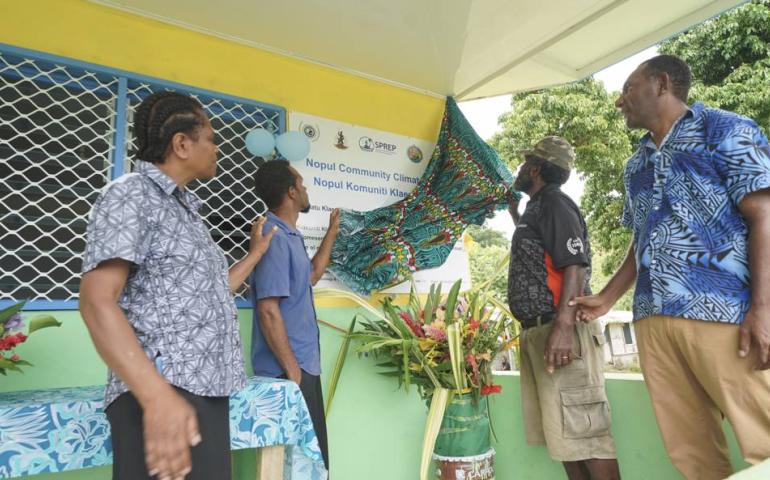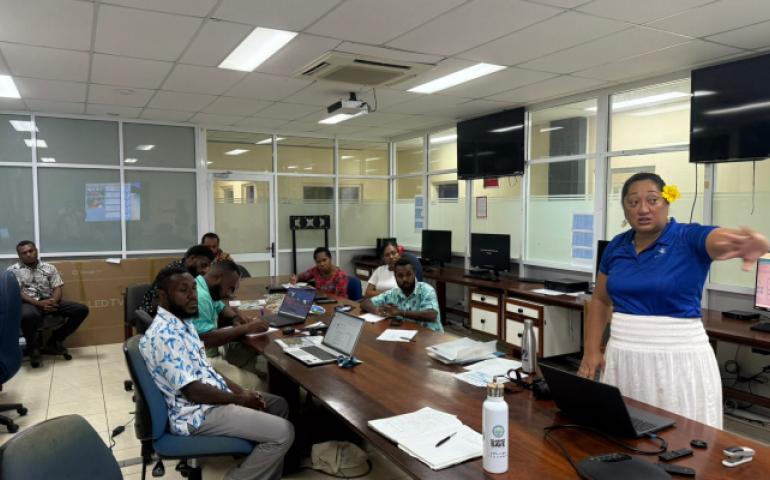Increasing Pacific Resilience through High Quality Climate Information
Noumea, New Caledonia. Climate officers from around the Pacific region gathered in Noumea, New Caledonia for the Inception Training Workshop for the Republic of Korea – Pacific Island Climate Prediction Services Project Phase 2 (ROK PI-CliPS 2). The workshop is one of many to be conducted in the Pacific region to help National Meteorological Services (NMSs) with seasonal climate prediction. And the new Climate Prediction Service Coordinator, Mr. Tile Tofaeono, who will manage Phase 2 of the ROK PI-CliPS project was officially welcomed to the project team.
The workshop was hosted by the New Caledonia National Meteorological Services at the L’Institut de Recherche pour le Développement (IRD) from 14-16 October 2019. Facilitated by Pohang University of Science and Technology (POSTECH), APEC Climate Center (APCC) and the Secretariat of the Pacific Regional Environment Programme (SPREP), the Inception Workshop was officially opened by Mr. Ravenel Hugues, Director of Meteo France New Caledonia.
“We have to cope with climate change and simplify our climate outputs to the user and keeping science integrity,” said Mr Hugues.
Ms. Bo Ra Kim, Senior International Project Manager for APCC said, “We are also excited to review the Pacific Islands Climate Advance Seasonal Outlook (PICASO) tool once again – for the participants that are learning PICASO for the first time, we hope you will be able to fully utilize the tools available to you after the workshop.”
Climate officers representing 14 NMSs including Meteo France New Caledonia and Meteo France French Polynesia received training on the hybrid seasonal climate prediction model PICASO version 1.2 and its functionalities. To put theory into practice, the participants carried out hands-on exercises to generate seasonal outlooks for their own countries for the upcoming season October to December 2019.
Mr. Allan Rarai, Manager of the Climate Services of Vanuatu Meteorology and Geo-hazards Department (VMGD) said, “PICASO is very important for Vanuatu; as it is downscaled and uses a number of climate predictors that is tailored to a country, especially in comparing different model outputs and generating the best climate outlook for the country that will support farmers and communities in their decision making. I want the PICASO tool to be used in the operational manner so we can contrast with other models that are available.”
The ROK PI-CLIPS 2 is funded by the Republic of Korea through the Pacific Islands Forum Secretariat and is being implemented jointly by POSTECH and SPREP, with support from APCC. The two goals of the project aims to address are: (1) the development of a Consensus Climate Outlook (CoCO) function for the Pacific Island Countries Advanced Seasonal Outlook (PICASO) and; (2) building the capacity of NMSs.
ROK PI-CLIPS 2 activities is a continuation from the successful ROK PI-CliPS (2014-2017), where climate tools were developed to help NMSs in predicting seasonal timescales.
“I’m hoping that the project can aid in the development of a resilient Pacific” said Professor Jong-Seong Kug of POSTECH.
The three-year project spans from the Cook Islands, Federated States of Micronesia, Fiji, Kiribati, Marshall Islands, Nauru, Niue, Palau, Papua New Guinea, Samoa, Solomon Islands, Tonga, Tuvalu and Vanuatu.
The workshop concluded with a tour to the Meteor-France New Caledonia Headquarters and the Centre Culturel Jean-Marie Tjibaou in the afternoon. This was followed by an official workshop dinner. The support of Meteo-France – New Caledonia, French Polynesia and IRD is kindly acknowledged.




